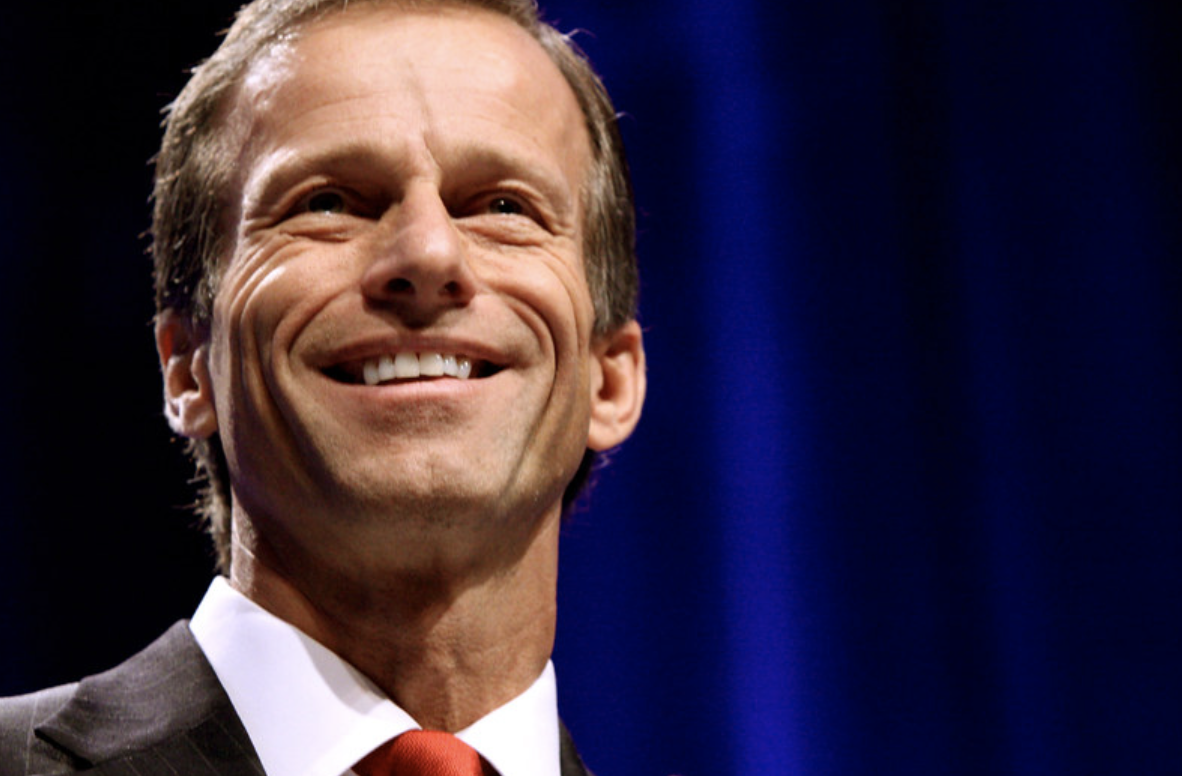List of Traitors: These GOP Senators Sided with Biden to Keep Foreign Aid Flowing in Total Sellout of DOGE, Trump

For Republicans, the choice was straightforward: Demonstrate a commitment to eliminating the Democrat-favored foreign aid projects that the Department of Government Efficiency had flagged by embedding the cuts into the spending package.
According to Politico, this effort was spearheaded by Kentucky GOP Sen. Rand Paul, who aimed "to force the Senate to vote on codifying President Donald Trump’s cuts to foreign aid, a potential hitch for Republican leaders working to pass a bill to prevent a government shutdown Friday night."
Ultimately, there was no government shutdown on Friday night, nor any so-called "hitch" in the process. Senate Minority Leader Chuck Schumer conceded that resisting a GOP-driven continuing resolution was pointless, and some of his Democratic colleagues were encouraged to support the plan. As Politico reported, 10 out of 47 Democratic or Democrat-aligned senators backed the measure, marking a rare defeat for the left.
What stands out, however, is the number of Republicans who went on record opposing DOGE’s move to slash foreign aid—a category that, at USAID, has been shown to fund initiatives like DEI training in Serbia and transgender-inclusive comic books in Peru rather than essential causes like malaria prevention in sub-Saharan Africa.
While Paul is well known for his opposition to excessive spending, his amendment’s passage would have effectively derailed any bipartisan agreement. But consider this: It only took a small number of Republicans siding against the amendment to sink it, despite Paul’s expectation that many more would oppose it.
As Politico detailed, the proposal "would cut foreign aid grant funding by 83 percent, which would enact the reductions Secretary of State Marco Rubio and the president’s Department of Government Efficiency are already making. The Kentucky Republican predicts that about half of Republican senators would oppose the amendment, putting them on record against the Trump administration’s work."
Paul’s estimate was strikingly accurate regarding the number of GOP senators who were reluctant to trim foreign aid spending closer to Biden-era levels.
Rather than publicly condemning his fellow Republicans, Paul opted to simply share their names in an X post:
Just tried to put President’s Doge foreign aid cuts into law.
— Rand Paul (@RandPaul) March 14, 2025
27 Republicans voted to cut foreign aid but 26 Republicans and all Democrats voted to keep funding foreign aid at Biden levels.
What a disappointment!
Those who voted with me:
YEAs ---27
Banks (R-IN)
Blackburn…
Others, however, were not as generous:
The Nays are far more important to list and here they are:
— Patrick Webb (@RealPatrickWebb) March 15, 2025
Republicans who voted against Rand Paul:
Barrasso (R-WY)
Boozman (R-AR)
Capito (R-WV)
Cassidy (R-LA)
Collins (R-ME)
Cramer (R-ND)
Crapo (R-ID)
Fischer (R-NE)
Graham (R-SC)
Grassley (R-IA)
Hoeven (R-ND)
Hyde-Smith…
For clarity’s sake, here are the Republican senators who voted against the foreign aid cuts:
Sens. John Barrasso (WY), John Boozman (AR), Shelley Moore Capito (WV), Bill Cassidy (LA), Susan Collins (ME), Kevin Cramer (ND), Mike Crapo (ID), Deb Fischer (NE), Lindsey Graham (SC), Charles Grassley (IA), John Hoeven (ND), Cindy Hyde-Smith (MS), James Lankford (OK), Mitch McConnell (KY), Dave McCormick (PA), Jerry Moran (KS), Markwayne Mullin (OK), Lisa Murkowski (AK), Pete Ricketts (NE), Mike Rounds (SD), Tim Scott (SC), Dan Sullivan (AK), John Thune (SD), Thom Tillis (NC), Roger Wicker (MS), and Todd Young (IN).
Some of these names were as predictable as the sun rising in the east. If Susan Collins and Lisa Murkowski had actually supported a measure that backed Trump’s priorities while putting Democrats in a difficult position, I would have called for the same cognitive testing that should have been conducted on Joe Biden before he took office—just to make sure they were of sound mind before casting such an uncharacteristic vote.
And, of course, Mitch McConnell was among those voting to keep foreign aid flowing. His ingrained "go-along-to-get-along" mentality remains strong, even without a leadership role. Bill Cassidy’s opposition was also unsurprising, given his history of resisting Trump-related policies in seemingly arbitrary ways. As for Lindsey Graham, he continues to evolve at a rapid pace, making it difficult to determine whether the latest version of "Lindsey Graham v. 8.4" considers MAGA a feature or a bug.
More baffling, however, were some of the other names on this list. Both of Oklahoma’s senators? In a state where every single county went red in 2024? Mississippi’s senators? Tim Scott? John Thune, the GOP’s new caucus leader?
These senators, fully aware that Democrats and RINOs would undermine spending reforms regardless, should have been willing to stand with the president. And if this move disrupted negotiations? So be it. This was the #SchumerShutdown from the start—his decision to use the debt limit as leverage against the Trump administration was the real roadblock. Meanwhile, the type of foreign aid DOGE targeted is wildly unpopular with the American public. Republicans, do the math and stop voting out of fear.
That being said, maybe it’s too much to expect real leadership—but is it unreasonable to ask for at least half of the GOP caucus to show some backbone?
“My vote will be an example of how many people support DOGE,” Paul said last Wednesday.
“No Democrats, obviously. But on the Republican side, how many people actually would cut any money from foreign aid? I think you’ll be surprised, or maybe you won’t.”
Unfortunately, I wish I could say I was shocked—but sadly, I’m not.